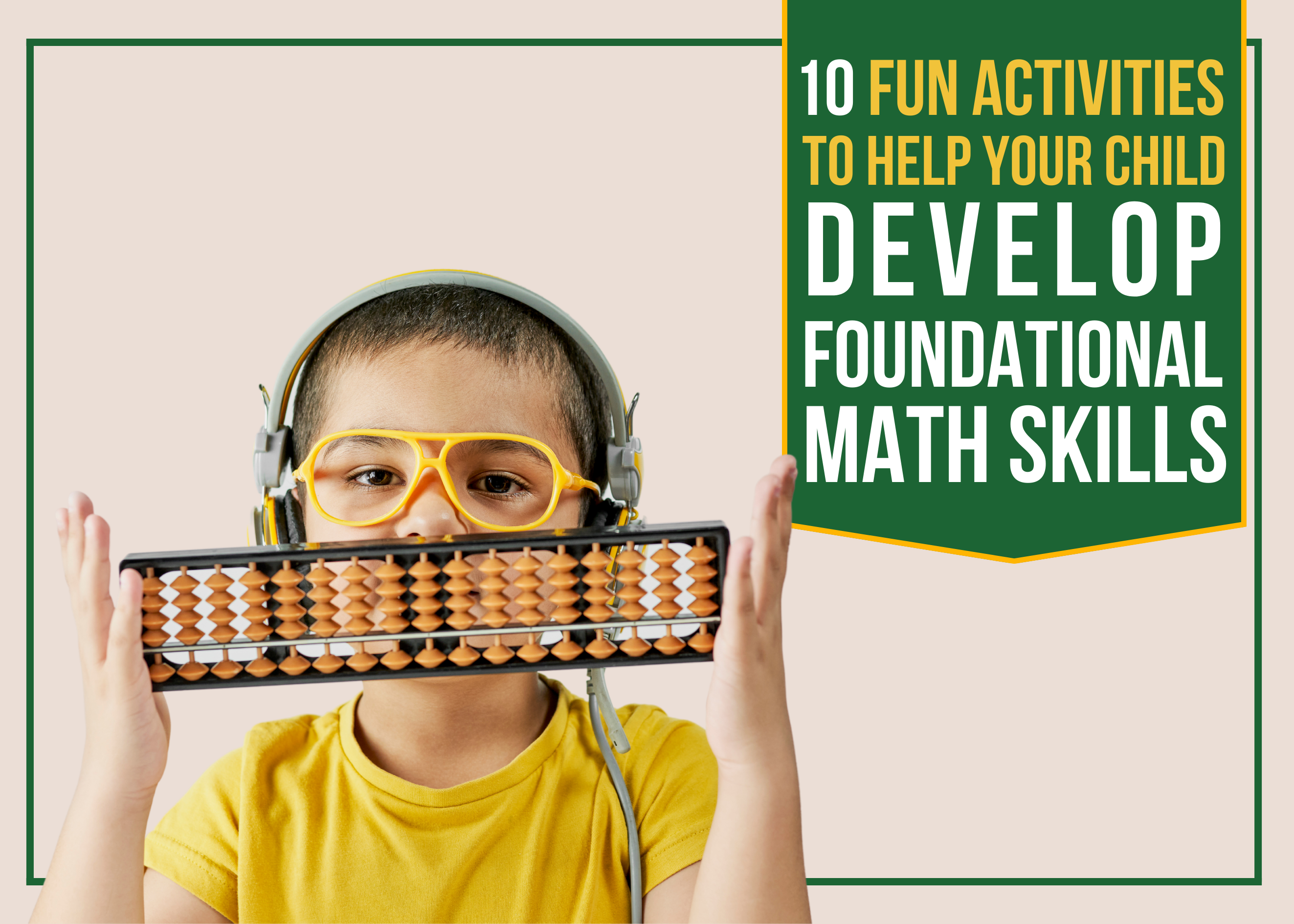10 Fun Activities to Help Your Child Develop Foundational Math Skills
Mathematics is one of the essential subjects that children learn in school. It plays a crucial role in their daily lives, from counting money to measuring ingredients when cooking. Developing foundational math skills is necessary for success in higher education and in life.
As a parent or caregiver, you can help your child develop these skills through fun activities that make learning math enjoyable. In this article, we'll explore ten fun activities that you can do with your child to help them build a solid foundation in math.
Activity 1: Counting with Everyday Objects
One of the easiest and most effective ways to help your child develop math skills is by counting with everyday objects. You can start by counting the number of toys in their room, the number of steps on the stairs, or the number of apples in a bag. As your child becomes more confident, you can move on to more challenging objects, such as counting the number of chairs in a room or the number of cars in a parking lot.
Activity 2: Playing Math Games
Playing math games is an excellent way to make math fun for your child. Games like Uno, Yahtzee, and Monopoly can teach your child addition, subtraction, multiplication, and division skills in a fun and engaging way. You can also find many math games online or create your own games at home.
Activity 3: Baking and Measuring Ingredients
Baking is a great way to teach your child about fractions and measurements. You can ask them to measure the ingredients, count the number of eggs, and divide the dough into equal portions. Not only will your child learn valuable math skills, but they'll also get to enjoy a tasty treat at the end.
Activity 4: Sorting and Classifying Objects
Sorting and classifying objects can help your child develop critical thinking and problem-solving skills. You can ask your child to sort their toys by color, size, or shape, or to classify objects based on their use. This activity can also help your child develop language and vocabulary skills.
Activity 5: Drawing Shapes and Patterns
Drawing shapes and patterns can help your child develop spatial awareness and geometry skills. You can ask them to draw shapes like circles, squares, and triangles or to create more complex patterns using different shapes and colors.
Activity 6: Building with Blocks
Building with blocks is an excellent way to teach your child about spatial awareness, geometry, and problem-solving skills. You can ask your child to build a tower using different shapes and sizes of blocks or to create a structure using only a specific number of blocks.
Activity 7: Playing Store
Playing store can teach your child valuable math skills, such as addition, subtraction, and counting money. You can ask your child to set up a store with items they already have at home and then pretend to buy and sell items using play money.
Activity 8: Creating a Calendar
Creating a calendar can help your child develop time-telling and counting skills. You can ask them to draw a calendar and mark important dates, such as birthdays and holidays.
Activity 9: Telling Time
Telling time is a crucial skill that your child will use throughout their life. You can teach your child how to tell time using an analog clock by asking them to identify the hour and minute hands. You can also create a daily routine that involves checking the time, such as setting a timer for a specific activity or having a designated time for meals.
Activity 10: Using Math Apps and Websites
There are many math apps and websites available that can make learning math fun and engaging for your child. Some popular math apps include Mathletics, SplashLearn, and Khan Academy Kids. These apps offer a variety of math activities, games, and videos that can help your child build foundational math skills.
Conclusion
Math is an essential subject that your child will need throughout their lives. By incorporating fun activities into your child's daily routine, you can help them develop foundational math skills and set them up for success in higher education and in life. Remember to keep the activities age-appropriate and enjoyable for your child and to praise their efforts and progress along the way.
FAQs
At what age should I start teaching my child math skills?
You can start teaching your child math skills as early as age two by introducing them to counting and basic shapes.
How can I make math fun for my child?
You can make math fun for your child by incorporating it into their daily routine through games, baking, and other fun activities.
Are there any math apps or websites that you recommend?
Yes, some popular math apps and websites include Mathletics, SplashLearn, and Khan Academy Kids.
How often should I incorporate math activities into my child's routine?
You can incorporate math activities into your child's routine as often as you like, but aim for at least a few times a week.
What if my child struggles with math?
If your child struggles with math, try to make it more enjoyable for them by incorporating fun activities and praising their efforts and progress. If they continue to struggle, consider seeking help from a tutor or teacher.





